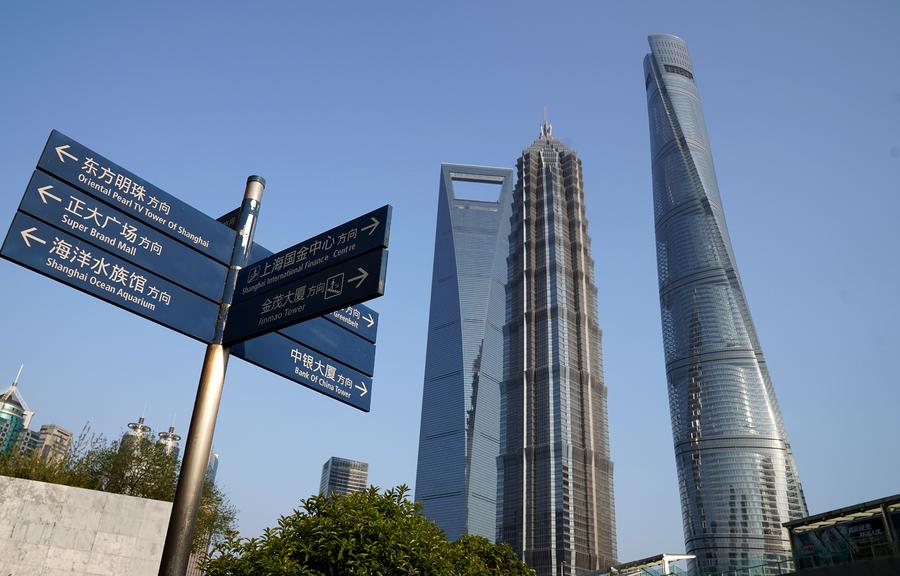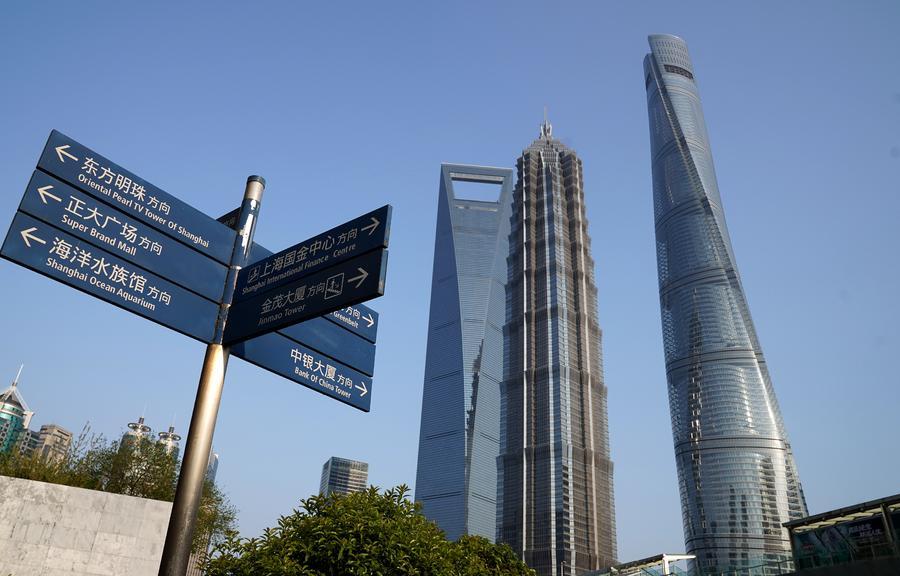
File photo shows the Lujiazui area in east China's Shanghai. (Xinhua/Chen Fei)
BEIJING, July 4 (Xinhua) -- Multiple international financial institutions have recently released their outlook for the Chinese market in the second half of 2024. It is their general belief that given the optimism about China's economic prospects and the relatively low valuation of its equity assets, now may be the right time for long-term investment.
-- Optimistic expectations for China's economic growth
Barclays' research team released a quarterly report on emerging markets in Asia a few days ago, expecting their overall economic growth in 2024 to reach 5.2 percent, up 0.4 percentage point from 4.8 percent in their March forecast.
"China's economic data in the first quarter has exceeded expectations, leading Barclays to raise its 2024 GDP growth estimate for China from 4.4 percent to 5 percent," according to the Barclays' research team.
Barclays' recent revision of China's economic growth forecasts this year is in line with multiple international financial institutions, which have also made upward adjustments to their forecasts: JP Morgan from 4.9 percent to 5.2 percent, Citi from 4.6 percent to 5.0 percent, and Goldman Sachs from 4.8 percent to 5.0 percent.
In addition to international financial institutions, international organizations are also raising their expectations for China's economic growth. Gita Gopinath, first deputy managing director of the International Monetary Fund (IMF), stated in Beijing on May 29 that China's economic growth remains resilient, predicting a growth rate of 5.0 percent in 2024 and 4.5 percent in 2025.
-- Undervalued equity assets with recovering earnings
Against the backdrop of robust macroeconomic performance, China's equity assets have received wide market attention due to their low valuation and significant recovery in corporate earnings.
"The recent re-adjustment in A-shares gives investors an opportunity to evaluate future growth drivers. Moreover, we are seeing upward revisions in earnings estimates for Chinese companies, which is a promising sign. As earnings growth re-accelerates, foreign investors are expected to shore up confidence in Chinese companies," said Zhao Yaoting, global market strategist at Invesco for Asia Pacific (excluding Japan), at the recent Invesco 2024 Midyear Global Investment Outlook Conference.
Investors may consider the barbell strategy in the Chinese market, focusing on growing sectors while also paying attention to defensive sectors such as finance, utilities, telecoms, and energy, as recommended by Hu Yifan, chief investment officer and chief macroeconomics officer at UBS Wealth Management Asia Pacific.
-- Following closely the Fed's monetary policy changes
Furthermore, from the perspective of global capital market allocation, the path of the Federal Reserve's monetary policy changes in the second half of the year will also exert a certain impact on emerging markets.
"At the beginning of this year, the market predicted multiple interest rate cuts by the Fed in 2024. There was a substantial influx of foreign capital into A-shares at that time. However, with U.S. inflation not decreasing as rapidly as expected and the Fed's rate cuts postponed, the situation is evolving. This shift is not unique to Chinese assets. Instead, it is a short-term reaction to the changing U.S. dollar interest rates, as major emerging markets are experiencing funding pressure in equity," said Huang Senwei, senior market strategist at AllianceBernstein.
Zhao Yaoting predicts that the Fed will cut interest rates twice before the end of the year, but the first rate cut is unlikely to occur before September. Hu Yifan shares a similar perspective, believing that global inflation has subsided from its peak, and investors should brace themselves for a decline in interest rates.
(Edited by Yang Linlin with Xinhua Silk Road, linlinyanglyn@163.com)




 A single purchase
A single purchase









